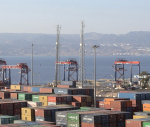You are here
Fixing global governance
Oct 08,2023 - Last updated at Oct 08,2023
EDINBURGH — After India’s G20 summit and the UN General Assembly last month, world leaders will attend the International Monetary Fund (IMF) and World Bank meetings in Marrakesh, before heading to the UN Climate Change Conference in Dubai. But there is little optimism that these summits will deliver meaningful progress in tackling our greatest challenges, not because of any lack of resolve, but because the global rulebook we have been following since the end of World War II is no longer fit for purpose.
The world’s growing fragmentation was confirmed at the G20 summit. Though the meeting signalled India’s arrival as a major power, prime minister Narendra Modi’s moment of triumph was fleeting. The summit did little to prevent the 2020s from almost certainly becoming a low-growth decade.
Despite the African Union’s admission as a full member of the G20, the Global South received scant relief for its crushing debts. And though G20 members are responsible for 75 per cent of global carbon emissions, the summit failed to address the scale of the climate financing gap. Acting on the findings of the G20’s Capital Adequacy Review, the Biden administration has committed to secure an additional $25 billion for the World Bank; but that figure falls far short of the $260 billion annual fillip that former US treasury secretary Lawrence H. Summers recommended in the Singh-Summers report to the G20 this year.
Instead, the summit concludes a year in which China and the West have been erecting new “iron curtains” in technology, trade, investment and data, foreshadowing a future of “one world, two systems”. With this new protectionism came a downgrading of the G20. Whereas former US president Barack Obama recognised the G20 as the premier forum for global economic cooperation, current US National Security Adviser Jake Sullivan sees the G7 (Europe, America, and Japan) as the ‘steering committee of the free world.’
The G20’s relegation is a by-product of the shift from a unipolar to a multipolar world, from a hyper-globalised economy to one that might be called “globalisation lite”, and from neoliberalism toward neo-mercantilism. For the last 30 years, economics determined political decision-making. Now politics, and nationalist politics at that, is driving policymaking. Zero-sum politics is triumphing over “win-win” economics.
In 1999, when I attended the first G20 (then composed only of finance ministers), American hegemony was at its peak, and the US Federal Reserve and US Treasury were happy to be called ‘the committee to save the world.’
When the global economy unraveled in 2008, the United Kingdom and others called on G20 member-state heads of government to come together for the first time. At the London G20 in 2009, we were keen that China join with the West in buttressing the global economy with $1 trillion of support. We could already see that the world was heading in a more multipolar direction.
The London summit also commissioned India’s then-prime minister, Manmohan Singh, to oversee a review of the prevailing international architecture. Then, at the Pittsburgh summit in the fall of 2009, the G20 agreed on a global compact for growth, to be spearheaded by the IMF, which would publish annual assessments to identify both the risks facing the global economy and the opportunities for coordinated action.
But as the West retreated into austerity policies and embraced new forms of protectionism, these initiatives fizzled out. Under Donald Trump, the United States broke from its tradition of (usually) acting multilaterally, and pursued unilateralism even as a multipolar world was coming into play.
However, climate change, the COVID-19 pandemic, and the energy and food crisis of 2022 confirm that the issues we face today are truly global problems in need of global solutions. Progress cannot be achieved by bilateral and regional interventions alone; it requires globally coordinated action.
In elevating the G7 at the expense of the G20, we need to ask what happens the next time there is a global financial crisis and we cannot find a way to bring all the major players together. What chance will we have of progress in reducing global emissions and preventing “free riders” in a world of “everyone for himself”? What chance do we have of dealing with global inequality if countries see the world only in terms of “us versus them”, and where there are no forums in which to find common ground?
True, US President Joe Biden acknowledges the need for global cooperation and is the most internationalist of recent US presidents. But while his own G20 agenda was not wrong-headed, it was half-hearted, preferring bilateral alliances to globally coordinated action.
These rare moments where preparation meets opportunity are when we must act together. US President John F. Kennedy’s nuclear test ban treaty, Ronald Reagan and Mikhail Gorbachev’s nuclear-arms reductions, and the historic 1987 agreement to address the depletion of the ozone layer all showed that strong leaders can ensure radical changes of direction. Today’s leaders must not wait for a catastrophe before being forced into action.
Permacrisis: A Plan to Fix a Fractured World by Gordon Brown, Mohamed A. El-Erian, Michael Spence, and Reid Lidow will be published on September 28, 2023.
Gordon Brown, a former prime minister of the United Kingdom, is chair of Education Cannot Wait’s High-Level Steering Group. Copyright: Project Syndicate, 2023. www.project-syndicate.org












